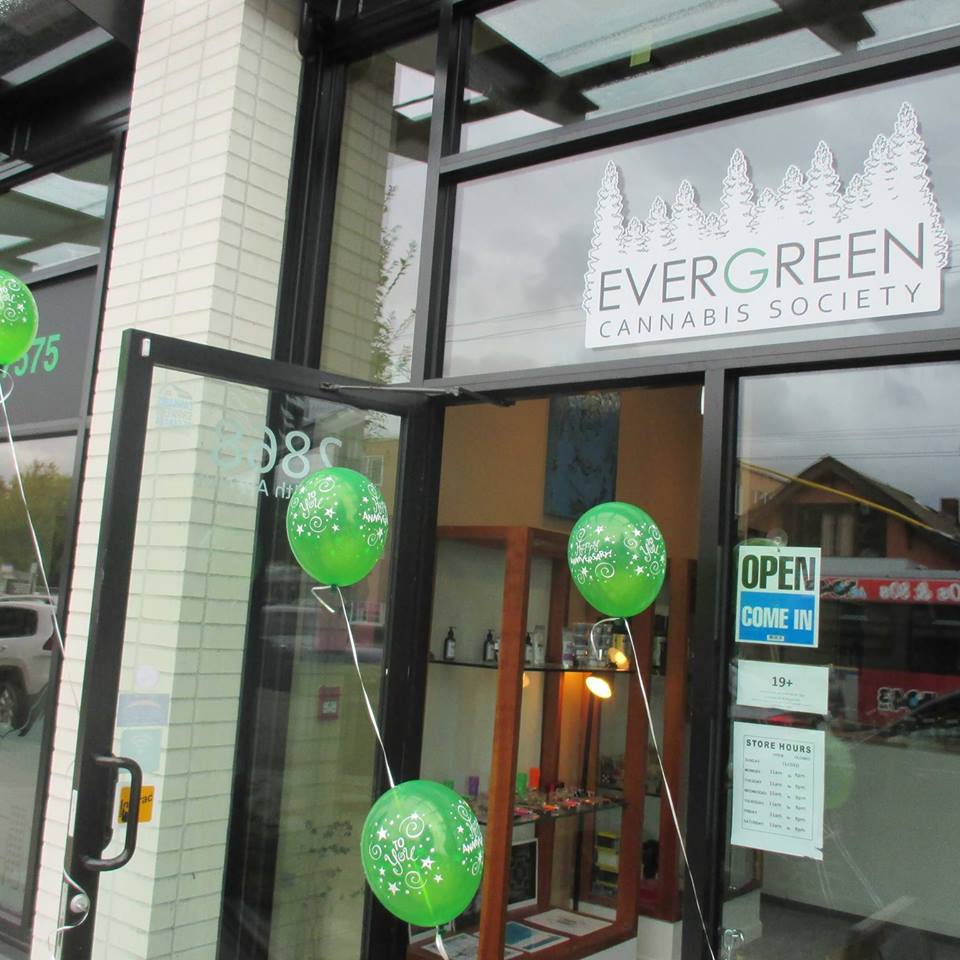
VANCOUVER — As Mike Babins opened one of Vancouver’s first two legal pot shops on Saturday, he showed little concern about the many illegal retailers still competing with him for customers.
The quicker that others can transition to the legal market the way he did, the better, he said — the remainder will be dealt with in time.
“I’m sure there was this issue when alcohol prohibition ended, but today do you go to the liquor store or some guy making bathroom hooch?” Babins said.
His store, Evergreen Cannabis Society, opened its doors in the city’s Kitsilano neighbourhood on Saturday, more than two months after recreational marijuana was legalized in Canada — and after jumping through numerous regulatory hoops.
British Columbia has lagged behind some other provinces in issuing non-medical cannabis retail licences, which must first be approved by the province, then referred to local governments or Indigenous communities.
The province says it has referred 232 applications, but only six licences have been issued, including Evergreen and two City Cannabis locations in Vancouver.
City Cannabis opened its location on Fraser Street on Saturday and said it plans to open its Robson location soon.
Provincial government websites list 65 licensed pot retailers in Alberta and 20 locations in New Brunswick, while Ontario will not have any stores until April.
The city said in a statement that it’s doing “everything possible” to co-ordinate with the province and existing operators to ensure they check the required boxes of a municipal development permit, provincial licences and municipal business licences.
Vancouver has issued development permits to 56 retail outlets, but those that have not applied for a provincial licence are subject to provincial and municipal enforcement.
Since May 2016, the city has applied for 53 injunctions against illegal dispensaries, some of which agreed to a test case that was heard in September 2018 before the B.C. Supreme Court and were ordered to shut down on Dec. 13.
Since the court case, the city said it has since identified about 20 retail shops that are operating without permits and has filed or is preparing to file injunction applications against them.
On Saturday, more than a dozen people lined up to be among Evergreen’s first legal customers.
The opening followed what Babins has described as an “extremely, extremely thorough” provincial licensing process involving background checks going back 20 years, as well as a difficult few months for him and his wife and business partner, Maria Petrucci, as they waited for approval.
Babins said the shop, which initially opened as a medical dispensary in 2015 and operated with a municipal licence under the old regime, stopped selling marijuana but kept staff on after legalization on Oct. 17 while waiting for the licences. Their only income was from non-cannabis products like rolling papers.
“My wife and I just watched the bank account get lower and lower and lower every day. We basically had to cash in what we had saved for our down payment for a house,” he said.
The night before opening, they faced one final hurdle. The full staff worked for 13 hours preparing the shop and struggled to meet a provincial law requiring samples to be contained in “smell jars” attached to a display case or counter — which makes the cannabis untouchable.
“We thought everything would be ready and smooth and easy to go but we realized no one knows how to use these little smell jars yet. I broke a lot of buds trying to get them to sit on the little spoke,” he said.
The plastic jars also added to a growing list of expenses, because Babins could only find a seller in California, which meant paying in American dollars and adding shipping, border and import fees.
“Yesterday was a big learning curve. I guess we’re going to be on a big learning curve for the next few weeks.”
In the end, however, Babins said he believes it will all be worth it.
“I’m thinking about tomorrow, not today — or yesterday actually,” he said.
“I think the more stores that get through this process — and we have a full legal framework in place — will be a good thing,” Babins said, adding that he believes the system will settle itself soon enough.
“I understand it’s pretty hard to give up when you’ve had to fight for so long — but the fight is over. It’s hard to realize that we’ve won.”
Jaclyn Pehota of Althing Consulting, who served as Evergreen’s regulatory consultant, said it was a “long haul” to reach what is essentially the beginning of something new.
“I think they represent a success story from the legalization perspective, because they come from the grey market and have successfully transitioned into a legal market,” Pehota said.
“I think that’s the point of legalization and that’s heartening.”